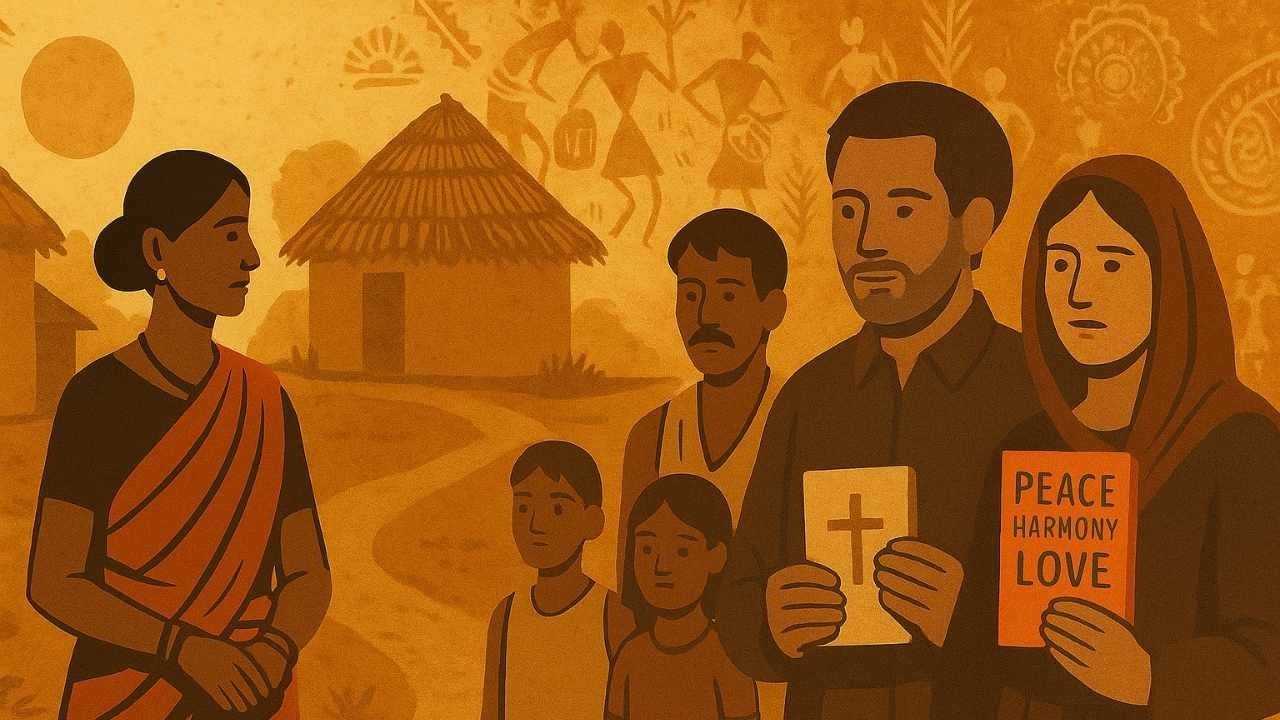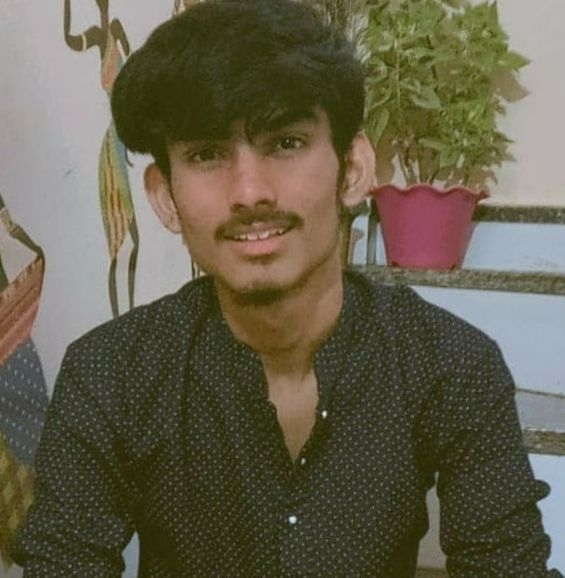The Expanding Network of Organised Conversions Targeting Vanvasi Communities in Bharat
10 Nov 2025 13:49:17

Bharat’s Vanvasi communities, since their very origin, have been deeply rooted in their ancestral traditions. Being viewed as vulnerable targets by foreign religious forces, they have increasingly faced systematic attempts of organised religious conversions. Between 2021 and 2025, numerous incidents across several states revealed patterns of inducement, coercion, and cultural manipulation. These activities have posed a serious threat to the Vanvasi faith systems.
This report documents forty-six such incidents from across India, highlighting the scale, methods, and growing coordination behind what has become a campaign of religious aggression against the Vanvasi communities of Bharat.
State-wise Incidents (2021–2025)
1. Madhya Pradesh
Jhabua (Nov 2021): A pastor and his associates were arrested for organising mass conversions among tribal villagers. Locals reported being pressured and offered food and money as inducements.
Alirajpur (Feb 2022): Several tribal families were converted through deceitful practices by a missionary group that promised education and jobs. Authorities intervened following local protests.
Barwani (Mar 2022): Villagers accused missionaries of converting people through healing camps. Police detained two pastors in connection with the case.
Khargone (Jun 2022): A group linked to an NGO was found distributing religious material in tribal hamlets. An investigation was ordered.
Betul (Sep 2023): Christian missionaries allegedly offered monetary help to tribal families to embrace their faith. A case was registered under the Freedom of Religion Act.
Mandla (Feb 2024): Religious workers were caught conducting conversion gatherings under the guise of social welfare programmes.
2. Chhattisgarh
Kondagaon (Dec 2021): Over 100 tribal villagers reconverted to their native faith after alleging pressure to adopt Christianity.
Narayanpur (Apr 2022): Villagers protested against missionaries, accusing them of forced conversion through financial inducements.
Dantewada (Sep 2022): Police detained preachers conducting unauthorised religious activities in tribal colonies.
Jashpur (Jan 2023): Complaints surfaced about conversions being carried out through education-linked NGOs. The local administration ordered an inquiry.
Kanker (Jun 2024): Tribal leaders accused local missionaries of offering scholarships in exchange for conversion. Community resolutions were passed to resist such acts.
Sukma (Mar 2025): Villagers reported organised attempts of conversion by visiting evangelists. Police booked three persons.
3. Jharkhand
Simdega (Jan 2022): A pastor was arrested for allegedly converting villagers under the pretext of medical healing sessions.
Khunti (Mar 2022): A tribal woman filed a case stating that she was pressured to change her religion in exchange for financial aid.
Dumka (Jul 2023): Students at a missionary school reported religious coercion during prayer sessions.
Ranchi (Dec 2023): An investigation revealed that rural NGOs were receiving foreign funds for religious propagation in tribal zones.
Chaibasa (Apr 2024): Local priests were accused of converting minors under educational pretexts. Parents filed official complaints.
MUST READ: The Forgotten Massacre of Marichjhapi: When the Communist Regime Butchered Refugee Hindus
4. Odisha
Kandhamal (Nov 2021): Reports emerged of organised conversion drives in tribal villages. Police registered preventive cases.
Malkangiri (Feb 2022): Tribal communities protested against forced conversions allegedly led by external missionaries.
Koraput (May 2023): Awareness programmes were held by locals to resist conversion attempts using monetary inducements.
Sundargarh (Oct 2023): Religious workers were booked under the state’s Freedom of Religion Act for influencing tribals through aid schemes.
5. Uttar Pradesh
Gorakhpur (Dec 2021): Two missionaries were arrested for offering money and medicines to convert poor villagers.
Prayagraj (Jun 2022): An NGO was raided for conducting secret prayer meetings intended for conversion.
Varanasi (Aug 2023): Police stopped a mass prayer gathering suspected to be linked with conversion activity.
Sonbhadra (Dec 2023): Tribal families reported being coerced to convert with promises of free education.
Bahraich (Apr 2024): Locals complained that pastors were misleading illiterate villagers. Several arrests followed.
Basti (Jan 2025): Religious books and conversion materials were recovered from a community centre.
6. Maharashtra
Gadchiroli (Dec 2021): Christian workers were accused of converting tribals under false claims of healing. An investigation was launched.
Nandurbar (Mar 2022): Several families reconverted to their tribal faith, citing deceitful conversions.
Palghar (Aug 2023): Religious NGOs were questioned for misusing aid programmes for proselytisation.
Nashik (Jan 2024): Police intervened after receiving reports of religious gatherings targeting tribal colonies.
7. Gujarat
Dahod (Feb 2022): Police busted a conversion racket and rescued villagers from coercive activities.
Chhota Udepur (Oct 2022): Fifteen families reconverted to their traditional faith after alleging deceit in conversion practices.
Narmada (Mar 2023): Missionary groups were accused of exploiting health camps for conversions.
8. West Bengal
Jalpaiguri (May 2022): A mission-linked NGO was accused of converting tribals through the distribution of rations and scholarships.
Purulia (Feb 2023): Local activists filed complaints of large-scale religious conversions in forest villages.
Bankura (Sep 2024): Reports indicated that Christian organisations were influencing Santhal youth through hostel programmes.
9. Bihar
Gaya (Jun 2023): NGOs were accused of spreading religious propaganda among Dalit and tribal families.
Jamui (Jan 2024): Villagers resisted missionaries attempting conversions through relief programmes.
West Champaran (Oct 2024): Awareness campaigns were launched by Hindu organisations following reports of religious inducement.
In a Nutshell
These cases of organised conversions among Vanvasi groups show a deep cultural struggle unfolding in Bharat, where age-old traditions face growing external pressure, testing both faith and identity across the country’s tribal heartlands.
Report by

Kewali Kabir Jain
Journalism Student, Makhanlal Chaturvedi National University of Journalism and Communication